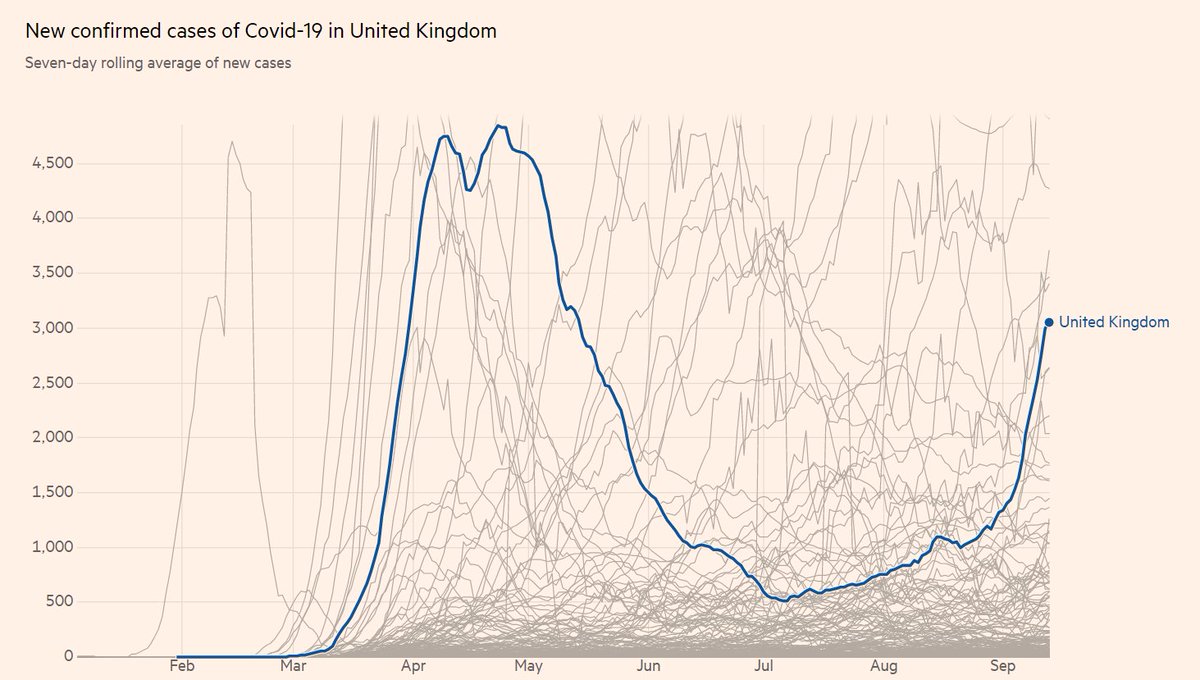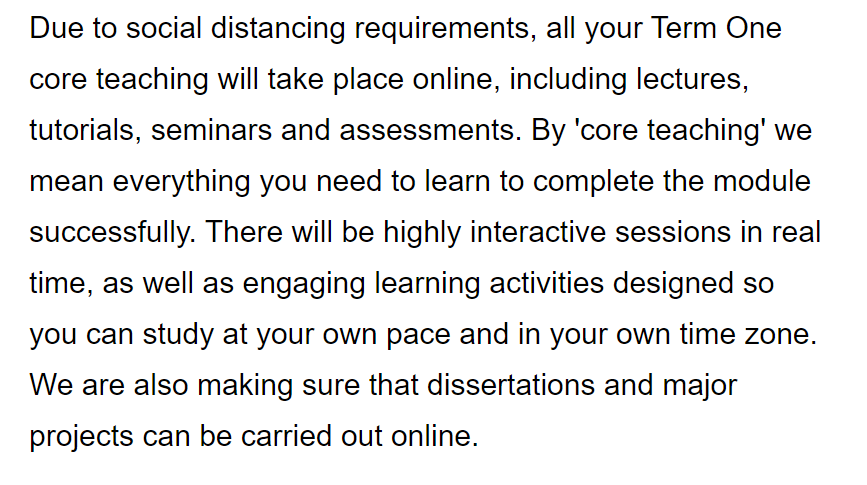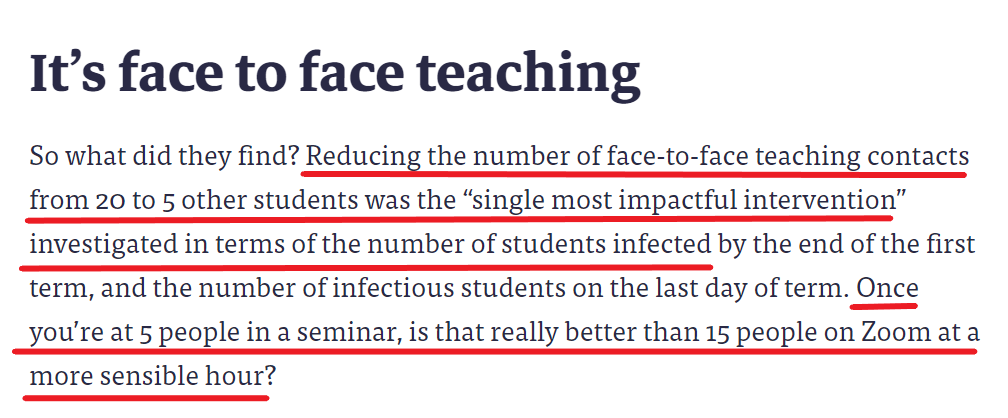A thread on the impending, foreseeable @UniversitiesUK car crash: Cases have been surging since the re-opening of schools & the call to return to work in early September. 1/10 

With the re-opening of schools, demand for tests now outstrips supply, and it will be a struggle for schools to remain open as a result. 2/10
theguardian.com/education/2020…
theguardian.com/education/2020…
An especially grim upshot is that there is now insufficient testing even for NHS workers. 3/10
bbc.co.uk/news/uk-541568…
bbc.co.uk/news/uk-541568…
It's therefore clear that, when university terms begin shortly, there will be insufficient capacity for the timely testing of all students & staff with symptoms. 4/10
As @Jim_Dickinson makes clear👇, if they can't get tested & receive quick results, students won't report symptoms & force their household to self-isolate. 5/10
https://twitter.com/jim_dickinson/status/1305545788290891776
As a consequence, there will be an unmonitored & uncontrolled spread of Covid-19 infections in university residential communities. 6/10
Needless to say, there won't be sufficient capacity for, or provision of, frequent testing of all, including those without symptoms, that's necessary to prevent widespread outbreaks in university communities. 7/10
https://twitter.com/MikeOtsuka/status/1289243511414558721
In light of these circumstances, the only responsible course of action is for universities to move teaching online this term. "Anything else is inviting disaster." 8/10
https://twitter.com/simonjhix/status/1304404221928894464
In other words, all @UniversitiesUK employers should now do what @ucl has already had the foresight to do👇. 9/10
ucl.ac.uk/students/acade…
ucl.ac.uk/students/acade…

Anything else is inviting disaster. 👇 10/10
https://twitter.com/acupunctureUSS/status/1301529690096701441
🚨PS: Limitation of face-to-face teaching the single most effective means of controlling spread of infection👇. Based on analysis of university modelling on which SAGE has drawn.

https://twitter.com/jim_dickinson/status/1305785941752188929

John Bell, Oxford Regius Prof of Medicine: "what has been underestimated was the speed at which the second wave would arrive, but also the pressure put on the system from children returning to school, and the testing demands associated with that"
theguardian.com/world/2020/sep…
theguardian.com/world/2020/sep…
It appears that prospective students were not put off by the prospect of online teaching provision at @ucl👇.
https://twitter.com/BrunoLeipold/status/1305797757958082561
SAGE member: "My big worry now is that we might be too late again to avert a major second wave. If we wait for deaths to go up again before taking decisive action we will be in trouble again."
itv.com/news/2020-09-1…
itv.com/news/2020-09-1…
As elsewhere (e.g., Spain, France), a rise in the rate of infection among older groups in the UK is following the initial rise in rate among young adults. Hospitalisations also rising. 1/
thetimes.co.uk/edition/news/c…
thetimes.co.uk/edition/news/c…

Neil Ferguson: infection rates now comparable to late February & "rises in deaths will unfortunately follow in the coming weeks". 2/2 

.@UniversitiesUK acknowledges urgent need to increase national testing capacity & availability for students👇. 1/2
standard.co.uk/news/education…
standard.co.uk/news/education…

Govt response: "It is vital that staff and students only get a test if they develop coronavirus symptoms."
I.e., we lack the capacity to provide asymptomatic testing that's necessary to prevent dangerous outbreaks in university communities.👇 2/2
I.e., we lack the capacity to provide asymptomatic testing that's necessary to prevent dangerous outbreaks in university communities.👇 2/2
https://twitter.com/MikeOtsuka/status/1289243511414558721
Hospital admissions rising sharply:
https://twitter.com/ActuaryByDay/status/1306221226562646017
This👇. Meanwhile @UniversitiesUK employers press ahead with their plans to re-open & the band plays on.
https://twitter.com/HigherEdActuary/status/1306253629117079553
• • •
Missing some Tweet in this thread? You can try to
force a refresh






